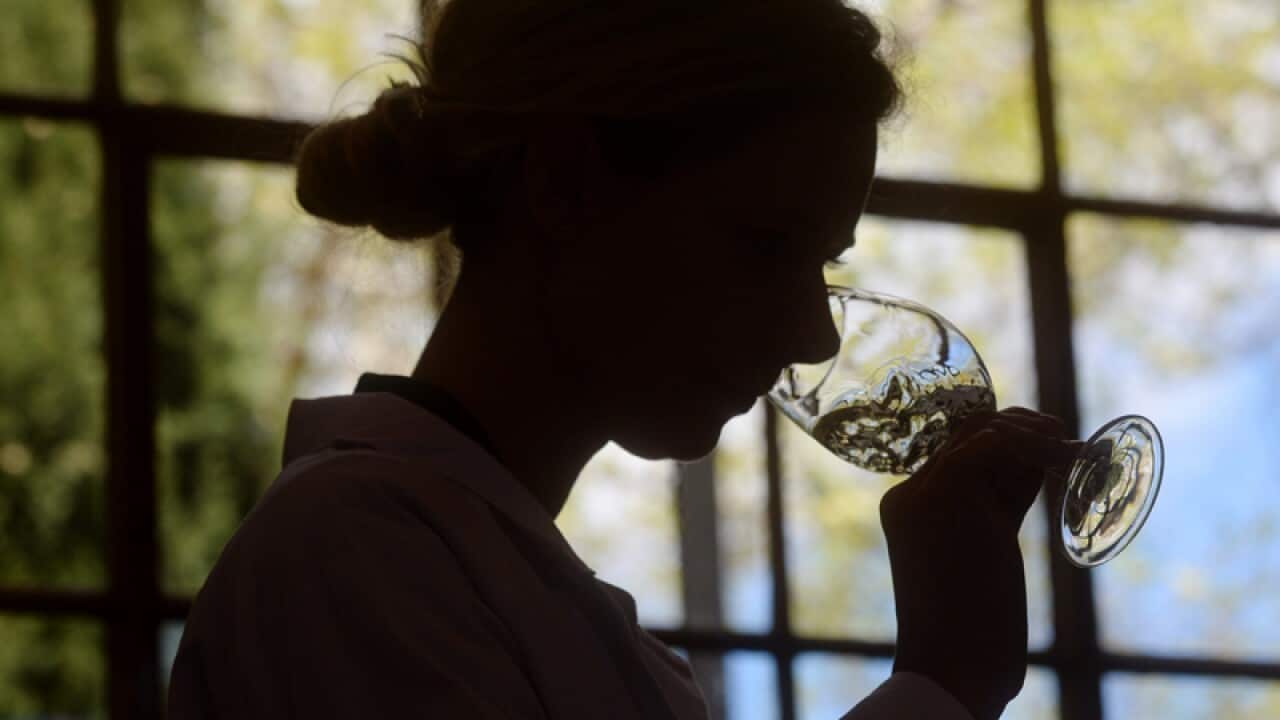In 2014, only a year after returning to Australian TV screens as host of The Bachelor, Osher Günsberg found himself unemployed, divorced and suicidal in Los Angeles. He was hallucinating, too - grappling with intense paranoia around the imminent devastation of climate change.
The world as he knew it was ending.
"All this stress started piling up in my subconscious and was waiting to just explode into my reality," he said at the time.
"My brain then went into this hyper alert state trying to make sense of everything, trying to tie together everything I saw back to the thing I was terrified of."
Flying home to Australia, Günsberg sought the urgent support of professionals and loved ones. Over time, he came face to face with his demons. He not only got to know them - he befriended and wrote about them. He found hope and solace in the shared experience of others, in which he interviewed those who had struggled - and eventually lived fulfilling lives - with mental illness.
Nine years sober, today he travels the country, speaking to Australian audiences about the value of vulnerability; reflecting on the challenges of alcoholism and severe mental illness with a calm insight and curiosity that comes only with surviving a plummet to, as he calls it, "rock bottom".
However, being vulnerable didn't always come easy to the former Channel V host.
Recalling his teenage years at a Catholic Boys School in Brisbane, the TV presenter, and writer is quick to acknowledge the challenges of fitting in - and the subsequent grip of group mentality too often succumbed to by young men.
"It was quite stuck in the olden model of the Catholic Boys School that you see in films, with the brothers and the rugby and the strapping. It truly impacted my ability [to be vulnerable], the school stuff," he tells SBS Life.
"It's the oldest story in the book. You go to school and you want to be accepted. There’s a person that has questionable morals, but you want to be accepted by them a little bit more, so you start doing and saying things to impress that person. You start slowly adjusting your behaviour more and more to get the approval of someone who, in hindsight, you wouldn't want close to you."
Perhaps it was this same desire for approval that motivated Günsberg when, as an overweight teenager without a university education, he began running. First he ran just to and from the letterbox, then did laps of his street, before throwing himself into a career in radio. Alongside friend and colleague James Matheson, he would eventually land a high-profile gig on Channel V and become one of the country's best known names as co-host of Australian Idol in 2003.
Still, despite his newfound fame, Australians didn't really know the Logie winner.
The unfurling of Günsberg's persona since with his mental illness in 2016 has been nothing short of revolutionary - and not only for him.
Optimistically, the warm reception to his openness could suggest a cultural shift towards the normalisation of mental illness in the mainstream Australian media; a sneak preview of a culture in which men don't feel compelled to translate their difficult emotions into anger. Equally, it's a powerful testament to the strength of asking for help.
In writing first his book, Back, After the Break, Günsberg has well and truly broken away from the pack. A searingly honest memoir scattered with raw depictions of addiction and self-deprecating anecdotes, the writing process, he reveals, soon became synonymous to his personal recovery.
Describing his mindset at the time, he says: "I was still on meds when I started it and I stopped meds while I was writing it.
"The first two months of being off meds I was writing the book. It was like going from the buttery soft bypass of the Hume Highway right onto a rough gravel road. You’re still driving, but…" He laughs.
"The book played a big role in the recovery process. It became a bit of a living document of the ongoing journey of making daily choices towards a healthier way of being," he explains.
"I’m lucky that I still get to make those choices. If I don’t make those choices in the day, it does impact me significantly. If I don’t eat right, if I don't get my eight hours of sleep, my resilience and ability to cope with stress goes out the window. It’s clear, you put two and two together."
It's while discussing the subject of self-care that Günsberg expertly pivots to The Bachelor, which he continues to host on Network 10 - comparing the commitment required to have a Men's Health physique (which, it's worth noting, ) to that required of a person living with mental illness.
"Look at Tim Robards (Australia's first Bachelor)," he says.
"He looks incredible, he works every damn day and makes choices at every meal time, every bed time, to keep him looking like that. If he didn’t, he wouldn't look like that."
He continues: "It’s the same with your head, you have to be mindful. If you have a different brain, that’s the life you get. But I get to live a far more deliberate, less reaction existence. It’s a real privilege to be alive and well, it’s incredible to wake up in the morning.
"I’m lucky."
Tickets for Osher Günsberg On Vulnerability -- in Sydney on 19 February and Melbourne on 21 February -- are on sale now at . He will also appear at the panel at All About Women Festival in Sydney on March 10.






